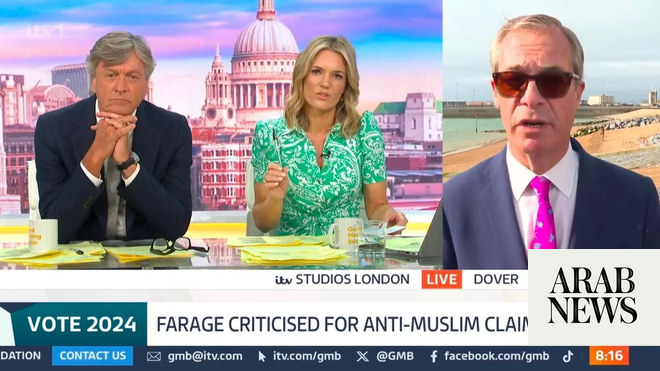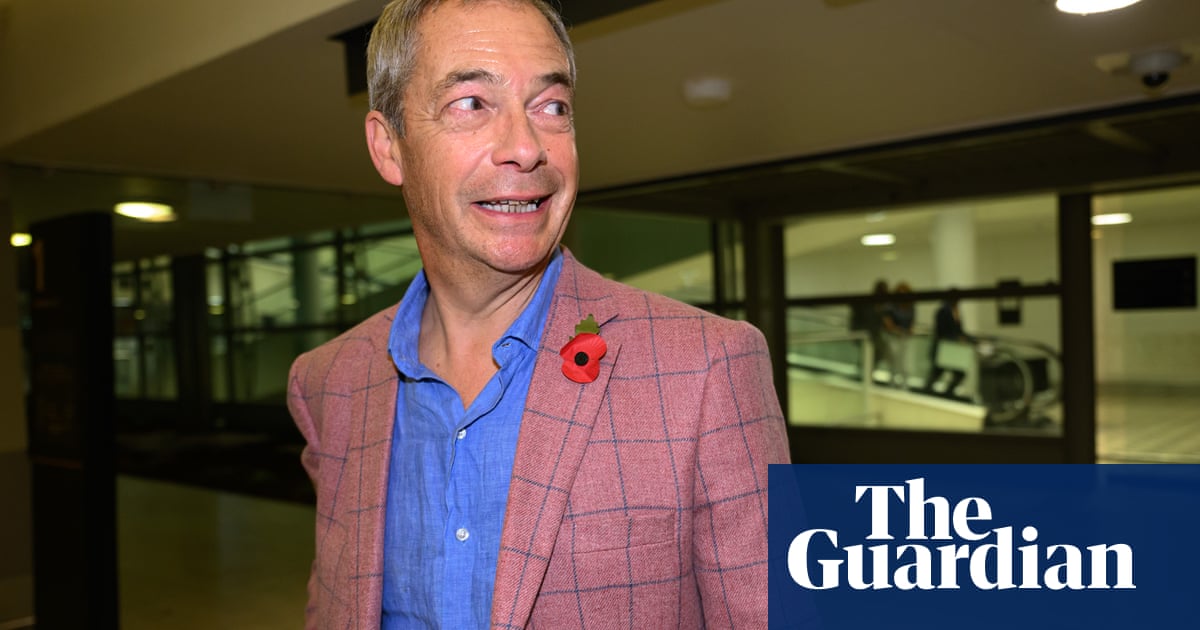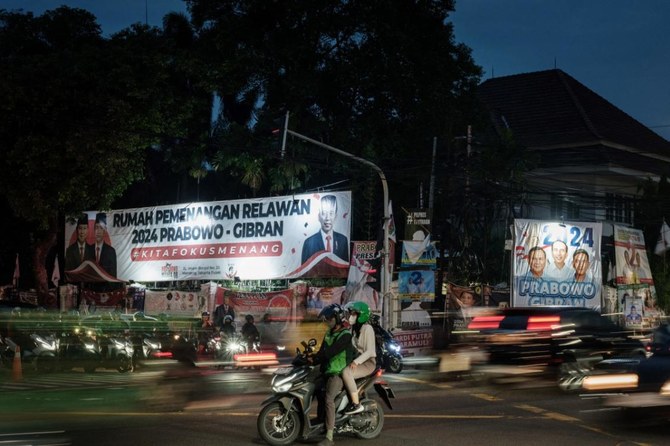
Nigel Farage is outperforming all other parties and candidates on TikTok throughout the general election campaign, analysis shows, eclipsing politicians considered most popular among young people.
Since the election was called, videos posted to the Reform leader’s personal account had more engagement and views on average than any other candidate – as well as the main channels of other parties.
Reform has recently decided to target younger voters as part of its campaign, with Farage appearing on podcasts aimed at young men and creating videos showing him mouthing Eminem lyrics. His posts have garnered more interactions per video than Jeremy Corbyn, Labour’s Zarah Sultana and the Greens’ Carla Denyer put together.
The switch in support for Reform is strongest among older voters – especially disillusioned 2019 Tories – but recent polling shows that Farage’s party is attracting more younger supporters than the Tories. A YouGov survey from 18 June has Reform on 11% among 18- to 24-year-olds and the Conservatives on 5% for the same group.
Across the four weeks of the campaign, the Labour party’s official account has posted more videos than the Reform leader, garnering the most overall engagement – measured as the number of likes, shares and comments – as well as views.
But Farage’s TikTok account posts the highest-performing content and easily beats Labour on a per-video basis by 30% – and the Tories by more than double – in the period between 22 May and 17 June by engagement.
Labour’s main account has almost double Farage’s views in absolute terms (33m total views to 18m). But to achieve those figures, the party has put out more than twice as much content (78 videos to Farage’s 33). Each video Farage has posted attracts an average of 552,000 views, compared with 423,000 for the Labour party. Meanwhile, the Conservative party’s account has averaged 504,000 views across only 24 videos since the elections were called.
The Labour party, however, has apparently taken a different approach. It has posted videos that appeal to niche interests, relying on TikTok’s aggressive curation to present them to only those users who would respond well. One video, for instance, ditches conventional messaging and instead depicts Rishi Sunak as the “auramancer” laying a curse on any user who doesn’t send it on.
For the analysis, the Guardian searched for accounts belonging to the main political parties as well as selected high-profile candidates with other affiliations, identifying about 500 candidates with TikTok accounts. But it only captures the frequency of engagement, not sentiment. An account could top the list with negative comments as well as positive views, although there is little to suggest that is the cause of Farage’s success on the platform.
Salvatore Romano, the head of research at the investigative non-profit organisation AI Forensics, said playing the algorithms was important for any success on the platform. “They are designed to maximise engagement rather than information quality. This means that if a user or politician wants to go viral, they need to create engaging content over high-quality content.”
The analysis also found that a third of Great Britain’s constituencies had candidates who were actively using TikTok during the election campaign – with those in the youngest fifth more likely to be using the platform.
Sultana, 30, Labour candidate for Coventry South, has been using TikTok to reach young people since she was first elected in 2019. She has the second highest number of followers, after Nigel Farage, and one of the best engagement and views figures of the general election candidates.
After Labour, Reform is posting the most content on TikTok. During the campaign, Labour’s candidates and the official Labour party account have posted more than 900 videos in total: almost three times the number posted by the Tories.
Meanwhile, Reform UK and its candidates have posted almost 800 videos in the same period, compared with 355 from the Conservatives.
The analysis also shows that the Scottish National party engaged heavily with the platform, with more than 40% of its candidates having a TikTok account, the highest percentage of the six parties analysed.
The Labour party comes second, with close to a quarter of the candidates for this election with accounts.
Additional reporting by Gabriel Smith, Lee Rodgers, Lily Smith, Mateusz Karpow and Andrew Nowak.












